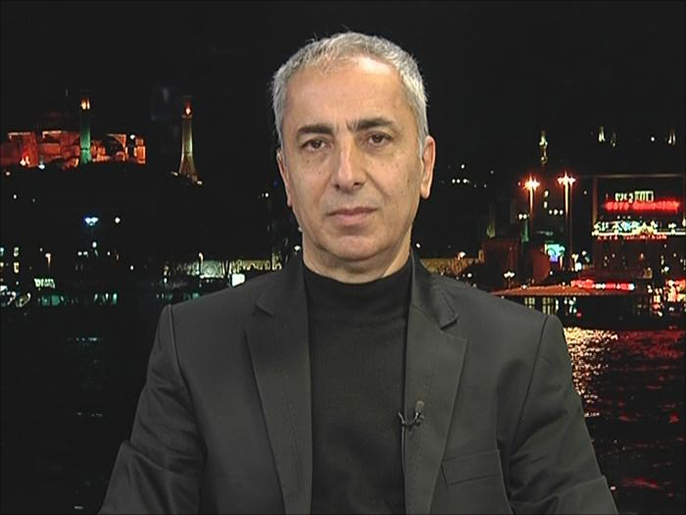ANKARA -
The broad headline in Afghanistan is still a blurring of the scene, amid accelerating events and complex bargains that Turkey participates in managing, and the behavior and decisions of the Taliban movement in the transitional phase remain the node that is being discussed within the corridors of the Turkish government, so what does Ankara worry about the Taliban?
What are the points of disagreement and convergence between the two parties?
After the crisis of the Taliban's refusal to keep Turkish forces at Kabul airport;
The movement's spokesman, Suhail Shaheen, described Turkey as a major partner in the reconstruction of Afghanistan after the war, stressing that the movement is counting on cooperation with Turkey in the fields of health care, education and the reconstruction of infrastructure that was destroyed by the war.
Difference and meeting
There are points of difference and convergence between the Taliban movement and Turkey led by the Justice and Development Party, and about the fundamental differences between the two parties, the researcher in Turkish affairs, Saeed Al-Hajj, says to Al-Jazeera Net that the model of governance presented by each is different from the other;
The Taliban presents itself as an Islamic emirate, but the AKP is a modernist political party under the roof of the Turkish constitution, which imposes secularism in the country.
Al-Hajj added that "as far as the Taliban is concerned, Turkey is a member of NATO that invaded Afghanistan, even if it did not participate in combat missions, and that Ankara has a direct relationship with Afghan parties and currents of Uzbeks, Tajiks and Turkmen, whom it considers to be members of the Turkish race, and therefore considers it an obligation to defend their rights in light of their field rivalry with the Taliban.”
Saeed Al-Haj: There are clear interests of Turkey in Afghanistan related to its internal balances and regional competition (Al-Jazeera)
Despite the aforementioned intellectual and practical differences between the two sides, there are 3 main reasons that push them to meet, dialogue and cooperate, according to researcher Al-Hajj, which are:
The first: political pragmatism. There is a new reality in Afghanistan after the US withdrawal, and its title is the Taliban's control of Afghan lands and their transformation into an actor that cannot be ignored or avoided.
The second: the economy is a common priority for both parties;
The Taliban inherited a semi-collapsed state with a weak economy, and Turkey is a rising and ambitious regional power, and its economy has recently been suffering, especially in light of the Corona epidemic crisis. Therefore, the historical and fraternal relations between Turkey and Afghanistan will push towards advanced economic partnerships and trade relations between them.
Third: There is a clear need for the Taliban for international acceptance and to avoid siege, boycott, and attempts to foil and internal reunification, all of which are paths in which Turkey has experience and tools that the movement can benefit from.
On the other hand, there are clear interests of Turkey in Afghanistan related to its internal balances, regional competition, geopolitical importance, relations with the United States, and so on.
Samir Salha: Turkey cannot risk appearing as a leader in building a new alliance with the Taliban in Afghanistan (Al-Jazeera)
Ankara concern
Samir Salha, professor of international law at Kocaeli University, stated that Ankara does not want to bear the responsibility of opening the way for the Taliban, and for some of them to face it again with the responsibility of promoting political Islam on the “Taliban way” this time, so it wants the Taliban to provide adequate social, political and legal guarantees To facilitate the crossing towards a new stage in the country.
Saleh told Al Jazeera Net that the reason for Turkish concern is also due to the possibility of an American game to ignite the explosion and implicate everyone in Asia, after Washington felt that it had no interest anymore in Afghanistan;
The Turkish fear comes from the possibility of US understandings with the Taliban to establish an Islamic emirate that provides protection for extremist groups and movements that play their card against the rising powers in the region of the Afghan neighbors.
He added, "Turkey cannot risk appearing as a leader in building a new alliance with the Taliban in Afghanistan, and provides support and protection for it in an arena of quicksand before it is sure of the movement's intentions and political project in building the new state."
Salha pointed out that the Turkish proposal is one basket to be discussed with the Taliban, and it brings together the clarity of the vision of the transitional phase, the expected composition of the government, and the movement's readiness for real openness to the international community before discussing any recognition of it.

